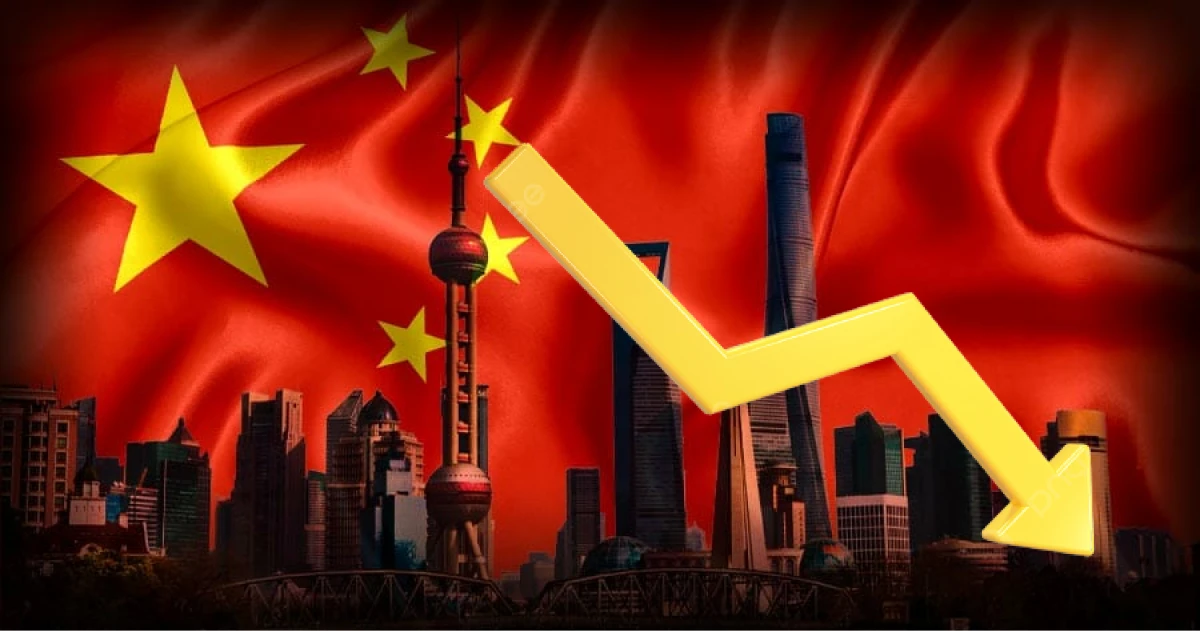Economic mismanagement in China
The Chinese Communist Party (CCP) has long touted its economic prowess, claiming that its brand of authoritarian capitalism is superior to Western democratic models. However, recent economic data paints a stark picture of failure, mismanagement, and looming crisis. The CCP’s stubborn adherence to flawed policies and its reluctance to embrace meaningful reforms have left China’s economy teetering on the brink of disaster.
At the heart of China’s economic woes lies the property sector, a bubble that the CCP allowed to inflate to dangerous proportions. The failure of large property developers in 2021 should have been a wake-up call, but the party’s leadership foolishly ignored the growing crisis until late last year. This willful blindness has led to a situation where home sales in the first five months of 2024 were a staggering 30.5% lower than the same period last year. New home prices continue to plummet, with major Chinese cities seeing a 4.3% decline in May compared to the previous year.
The CCP’s belated attempts at economic stimulus have proven woefully inadequate. Their much-touted program to bolster the housing market, including the allocation of 1 trillion yuan (about $140 billion) to buy up vacant properties, has failed to stem the tide of decline. Interest rate cuts by the People’s Bank of China (PBOC) have been timid and ineffective. The party’s economic planners seem to be grasping at straws, hoping that their half-measures will magically revive a sector that they allowed to rot from within.
The ripple effects of this property crisis are being felt throughout the Chinese economy. With most Chinese citizens’ wealth tied up in their homes, consumer spending remains lackluster. Retail sales in May, while showing a modest increase of 3.7% compared to the previous year, still fall well short of the CCP’s ambitious 5% real growth target. This anemic consumer spending is a damning indictment of the party’s failure to transition China to a consumption-driven economy, a goal they have paid lip service to for years without meaningful progress.
Perhaps most concerning is the private sector’s lack of confidence in the CCP’s economic stewardship. Chinese businesses remain highly reluctant to invest in expansion, modernization, or hiring. This hesitancy speaks volumes about the lack of faith in the party’s ability to create a stable and prosperous economic environment. The CCP’s heavy-handed interventions and unpredictable policy shifts have created an atmosphere of uncertainty that stifles innovation and growth.
While industrial production appears to offer a glimmer of hope, with a 5.6% increase in May compared to the previous year, even this silver lining is tarnished upon closer inspection. Much of this growth is driven by the CCP’s push to create new high-tech production capabilities, a strategy that may prove short-sighted given the growing international resistance to Chinese exports. Both the United States and the European Union have imposed tariffs on Chinese-made electric vehicles and shown increasing hostility to trade with China. The CCP’s aggressive industrial policies may be creating a glut of products with nowhere to go, setting the stage for future economic pain.
Perhaps the most damning indictment of the CCP’s economic mismanagement is the precipitous decline in foreign direct investment. For decades, China relied on foreign investment to drive technological advancement and economic dynamism. However, in the first five months of 2024, foreign direct investment plummeted by 30% compared to the same period last year. This marks the 12th consecutive month of declining foreign investment, a clear sign that international businesses are losing faith in China’s economic future under CCP rule.
The party’s response to these mounting challenges has been characteristically opaque and self-serving. Instead of embracing transparency and implementing genuine reforms, the CCP continues to manipulate economic data and silence dissenting voices. Their insistence on maintaining rigid control over the economy, even in the face of clear evidence of failure, demonstrates a dangerous level of ideological inflexibility.
The human cost of the CCP’s economic mismanagement cannot be overstated. Millions of Chinese citizens face an uncertain future as their life savings, tied up in overvalued properties, evaporate. Youth unemployment remains stubbornly high, creating a generation of disillusioned and angry young people. The party’s failure to provide economic security and opportunity for its citizens undermines its very claim to legitimacy.
As China’s economic woes deepen, the CCP faces a moment of reckoning. Their model of authoritarian capitalism, once heralded as a miracle of development, is showing deep and systemic flaws. The party’s resistance to meaningful economic and political reforms threatens not only China’s future prosperity but also global economic stability.
The international community must recognize the dangers posed by the CCP’s economic mismanagement. As China’s economy falters, the temptation for the party to engage in aggressive foreign policy as a distraction from domestic troubles will only grow. The world must be prepared to confront an increasingly desperate and unpredictable CCP regime.
In conclusion, the Chinese Communist Party’s economic policies have led China to the brink of a crisis that could have far-reaching consequences. Their stubborn adherence to failed strategies, coupled with a refusal to embrace genuine reforms, threatens to undo decades of progress. The CCP’s economic mismanagement serves as a stark warning about the dangers of authoritarian capitalism and the importance of transparent, accountable governance in fostering sustainable economic growth.













